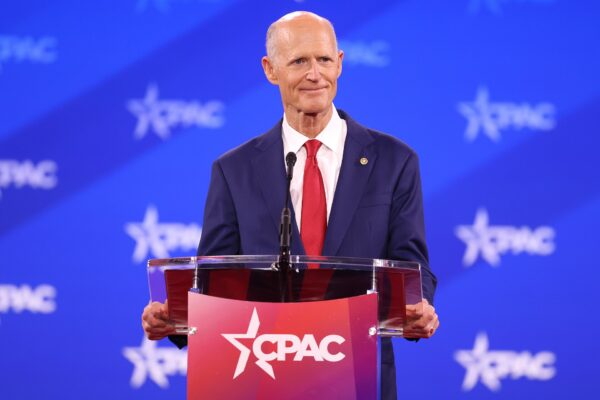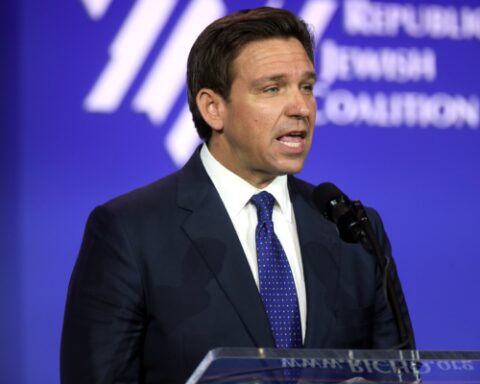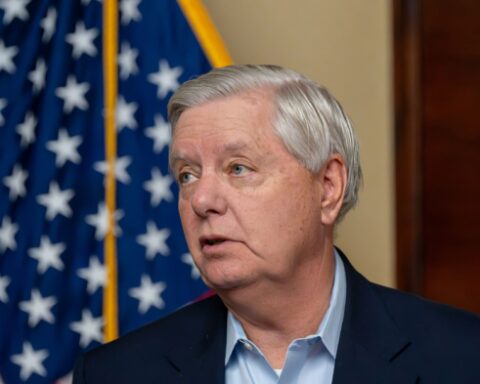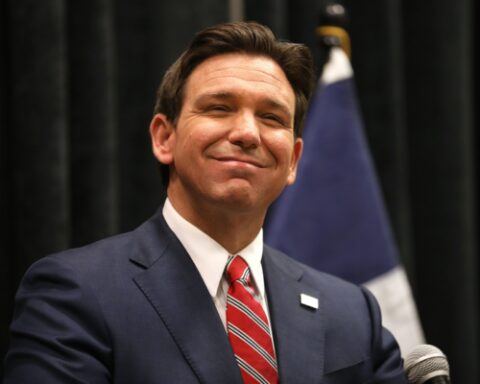Florida’s Republican leaders are now reportedly divided over the future of vaccine requirements for schoolchildren, with U.S. Sen. Rick Scott rejecting Gov. Ron DeSantis’ push to eliminate all state vaccine mandates.
DeSantis announced Wednesday that he intends for Florida to become the first state in the nation to do away with vaccine requirements, including those that apply to schoolchildren.
The move was touted as a bold step to expand parental rights and curb what the governor has long described as government overreach into family decisions.
But the proposal is complicated by the fact that nearly all of the vaccines currently required for students — all but four — are written directly into state law, meaning that any change would require the cooperation of the legislature.
Scott, a former Florida governor himself, pushed back. He argued that the state already has the right balance between safeguarding children’s health and protecting parental authority. “Florida already has a good system that allows families to opt out based on religious and personal beliefs, which balances our children’s health and parents’ rights,” Scott said.
Florida law currently provides broad exemptions for parents who choose not to vaccinate their children. Parents can obtain a religious exemption for their child by visiting their local county health department.
According to the state Department of Health, no appointment is necessary, and no questions are asked of those seeking the exemption.
The system has seen widespread use. For the 2024–25 school year, Florida recorded 10,556 non-medical exemptions, according to data from the U.S. Centers for Disease Control and Prevention.
That number underscores how many families are already exercising their right to make decisions outside of government mandates.
Scott’s position highlights an emerging fault line within the Republican Party in Florida. DeSantis has built his political brand around fighting what he calls “government mandates” — particularly those that rose to prominence during the pandemic.
His supporters have applauded his willingness to challenge federal health authorities and to expand parental rights in education and healthcare. Scott, however, signaled that the state may already have struck the right balance and that additional measures may be unnecessary.
The governor’s announcement, while dramatic, did not come with detailed plans for immediate implementation.
Neither DeSantis nor Surgeon General Joseph Ladapo had spoken with state lawmakers prior to unveiling the idea, raising questions about how quickly — if at all — the proposal could advance. For now, many of the mandates remain locked into statute, meaning legislative action would be required.
DeSantis’ office did not immediately respond to questions about Scott’s criticism or about the next steps for the plan.
For conservatives in Florida, the debate reflects two different approaches within the same party: one pushing for sweeping declarations of parental control, and the other emphasizing that the state already affords significant leeway to families who wish to opt out of requirements.
What remains clear is that Florida has already carved out one of the most permissive systems in the country, allowing parents to bypass vaccine mandates with ease.
Whether DeSantis’ latest move reshapes that system, or whether Scott’s more cautious approach prevails, will depend on whether lawmakers are prepared to take up the governor’s challenge.
[READ MORE: Paul Renner Enters Florida Governor’s Race, Challenging Trump-Backed Byron Donalds]









